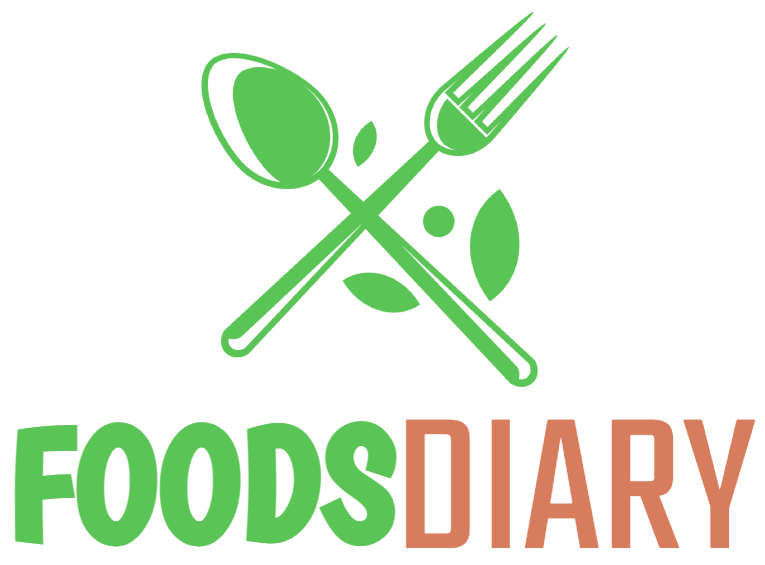Despite all the information that can currently be found on this subject, many people still wonder how to eat healthy every day, and not all the data found is verified or reliable. For this reason, we have shared this article on how to eat healthy on a daily basis, whether you are dieting or not, because eating healthy to lose weight or to maintain it is not so different in terms of guidelines to follow, if we ignore the reduction of calories that should be ingested.
In this complete guide on how to eat healthy and balanced, you will find a series of tips and guidelines that will help you know how to do it easily both inside and outside the home, and that you can implement daily without any problem. In addition, we are going to talk about the 3 macronutrients that your body mainly needs, ultra-processed products, the importance of physical activity and water as the main drink, food additives, obesogenic environments and the most popular types of cooking. Suitable for eating healthy every week. Likewise, we are going to offer you a series of recipes to eat healthy with which you can start preparing your healthy dishes and avoid processed foods, so keep reading and discover everything you didn’t know about how to have a healthy and balanced diet.
Carbohydrates: whole and unrefined
Carbohydrates or carbohydrates are our main source of energy and constitute 1 of the 3 macronutrients that our body needs to function properly, along with proteins and fats.
Despite this, one of the mistakes that are made when starting to eat healthy is to think that its quantity must be reduced considerably or to a minimum, and that is not healthy, since we need our body to transform those carbohydrates into glucose and it performs all the functions for which it is intended. The fact of not eating enough carbohydrates, initially, is reflected in a considerable weight loss but, in the long term, it can be very counter-productive at the health level, as many contrasting scientific studies have shown.
Whether you want to know how to eat healthy to lose weight or to stay healthy, whole carbohydrates are essential in your diet and should be included in their proper measure in all the main meals of the day, since they are considered complex carbohydrates (of slow absorption and low glycemic load) and are the ones that provide more fiber and nutrients to your body, compared to simple or refined carbohydrates, which are absorbed much more quickly but produce a much higher insulin response and become sources of insufficient energy and fast consumption.
Fruits and vegetables are carbohydrates too
When we talk about carbohydrates, we are not only talking about flours, breads, cereals, grains or tubers, but also about vegetables and fruits. As surprising as it may seem, fruits and vegetables are carbohydrates too, what happens is that their caloric level and glycemic index are very low and, therefore, many people are unaware of this information.
Thus, to eat healthy and balanced, vegetables and fruits must be the main protagonists of the diet, and if possible they must be included in all the meals that are made daily as main dishes and not as side dishes or accompaniments, which is how is usually done nowadays. These foods provide most of the vitamins, minerals and, in general, the micronutrients that our body needs. They are also very satiating and provide very few calories.
It is advisable to wash them well before consuming them and, if we can, eat them whole or with the skin to absorb as much fiber as possible. In addition, they are excellent healthy snacks mid-morning, mid-afternoon, or when it comes to satisfying cravings or snacking between meals, like this recipe for crudités with hummus, for example. And if you are interested in a plant-based diet, we recommend this article on how to start being a vegetarian.
Proteins: quality and lean
Everyone knows that proteins are responsible for building, regenerating and maintaining our body structures and tissues. However, this is not their only function, since they are also responsible for carrying out a lot of vital hormonal processes for our body, among other things.
There are proteins of animal origin such as meat or fish, and those of vegetable origin such as legumes and nuts, both equally valid and nutritious. The really important thing is that you know that to eat healthy every day it is necessary to choose quality and lean proteins and include them daily in all our main meals. When we talk about quality proteins, both animal and vegetable, we refer to foods that are as least processed as possible and that come from organic crops, if possible, so that they contain the maximum nutrients for our body. On the other hand, lean proteins are all those that contain less saturated fat so that they do not affect our blood cholesterol or other coronary diseases.
Therefore, to eat healthy without dieting, you should avoid sausages and red meats such as beef or pork, which are the fattest, and opt for white meats such as chicken or turkey, both blue and white fish, shellfish, eggs and vegetable proteins such as chickpeas or soy derivatives.
Tip: As widespread as this belief is, dairy is not protein. They have a protein part but rather act like fats in our body.
Fats: don’t be afraid of them
Fats are not the devil. Contrary to popular belief, they are an essential part of our diet and contribute to improving the hormonal environment of our body, among many other functions. But, of course, not all fats that exist are healthy. Saturated fats, which are mainly found in products of animal origin, such as red meat or dairy products (milk, eggs, butter…), and trans fats, such as those found in most industrial bakery products or margarine, they must be Avoid at all costs to give priority to unsaturated fats, such as fatty acids from vegetable oils, fish, avocado, seeds or nuts, which are very beneficial for our cardiovascular health and do not contain cholesterol.
For all these reasons, to eat healthy all week it is advisable to include a portion of healthy fats in all our main daily meals. Nuts, for example, are ideal snacks for any time because, in addition to good fats, they contain protein and fiber. Therefore, they are very satiating but at the same time caloric, so about 30 grams of raw or roasted nuts (not fried) and without salt will help you to gain energy and endure without going hungry until lunchtime, like these date and dried fruit bars.
Types of cooking: goodbye to fried
As healthy as vegetable oils are, 100 milliliters of olive oil contains approximately 900 calories, so one tablespoon (15 ml) is 135 calories. When we fry a food with oil we are causing it to absorb a large part of the liquid and, no matter how well we drain it, it will always contain a large part of the oil that it has absorbed, which increases the caloric value of that food.
In this way, another way to eat healthy every day is to avoid dry cooking such as frying, candying or sautéing products in oil and increase wet cooking techniques such as baking, braising, roasting, glazing, braising, boiling, poaching, roasting, steam or vacuum cook.
Water: always the best option
Another way to eat healthy every day is to drink water whenever you are thirsty. This statement may seem very obvious to you, but the vast majority of the population drinks any other liquid instead of water when they are thirsty, and that is not the best thing for our health.
As you well know, juices or fruit juices (whether processed or not), shakes, smoothies, sugary soft drinks, isotonic drinks, etc., not to mention cocktails with or without alcohol, are what are known as “empty calorie drinks“. This means that most of them provide a very low level of nutrients to our body but, on the other hand, they contain a lot of calories in a very small amount of product (1 calorie of these makes you fatter than 1 calorie of vegetables or fruits), and this is counterproductive to your daily calorie intake and can greatly influence weight gain and diabetes as many scientific studies have shown along these years. Why else would the WHO (World Health Organization) recommend raising taxes on sugary drinks in 2016 to all countries in order to reduce their daily intake and its consequences for the health of the world population?
Unless you are a high-performance athlete, avoid added sugars as much as possible, not only from isotonic drinks or soft drinks, but also from the rest of the food you eat daily, and it is recommended that you consume at most 5% sugar added daily. And light soft drinks are useless, since chemical sweeteners act neurologically as if they were refined sugars even though they physically do not provide calories.
Therefore, whenever you are going to drink something when you are thirsty, are eating, are going to have a drink outside the house or in any other situation, drink water. And it doesn’t have to be 2 liters a day as popular belief says, because by eating foods rich in water we are also consuming it. Simply drink what your body tells you to.
Tip: One way to tell if you’re drinking the water you need each day is to see if the color of your urine is light yellow. If it’s clear or darker, you’re drinking too much or too little.
Ultra-processed: away from home
We all know that many of the foods that we can find to buy are ultra-processed and this means that they are not healthy food, but rather “edible industrial preparations” full of endless lists of ingredients, not only of additives, but also of foods that have nothing to do with the product itself that we are going to acquire.
Some of the most common ultra-processed foods are industrial bakery and pastry products, refined cereals, dairy products with sugar, or pre-cooked foods or meals, among others. But not all ultra-processed foods are bad. There are some good ones such as canned legumes, fish or vegetables, frozen vegetables or fish, or vegetable oils, for example, where the quality of the primary food has not changed. And the key is in the raw material.
When a processed food contains many other ingredients apart from its raw material that have interfered with its flavor, formation or preservation, such as the addition of refined flours or starches, sugars, fats or additives, etc., you can be sure that it is not something that falls within the framework of a healthy and balanced diet. But this does not mean that it is forbidden to eat them or that if you eat them you will automatically get a serious illness. The idea is to be able to avoid them as much as possible if you want to eat healthy.
To have a guide, 80-85% of what we eat daily should be healthy food based on quality raw materials, the rest can be processed food. That is why it is essential to know how to read the labels of the products and see in them what the products that are going to feed us are made of.
How to eat healthy away from home?
In most cases it is more difficult to control ultra-processed foods when eating away from home than inside, but this is no excuse. Simply try to eat healthy and balanced by choosing dishes full of raw materials that are as least processed as possible and always following the guidelines of a healthy diet, like the ones we show you in this article to learn how to eat healthy every day even when you are not at home.
Another tip that can help you make smart choices is to go shopping with a full stomach, that is, without being hungry, and having a shopping list with the products you need written down beforehand. This will reinforce the fact that you don’t go off the list or buy food by sight.
Tip: This also applies when attending special events or parties or for meals on special dates such as Christmas.
Obesogenic environments: stay away as much as possible
You may not have stopped to think about this but humans are opportunistic omnivores, that is, we always eat everything we have at hand, and if I have a hamburger from a well-known fast food chain at hand, surely I will not be able to avoid putting it in my mouth; And if I have a package of ultra-processed oriental pasta on hand in my kitchen cupboard and I don’t have time to cook, I’ll probably end up making that package in the microwave, which is faster than preparing a good vegetable salad with avocado, for example.
Therefore, to eat healthy every week it is very important that you avoid obesogenic environments, that is, those environments where access to unhealthy foods is easy both outside and inside the house. If you are going to eat out, be aware of what you want to nourish your body with and choose places where there are healthy options. And at home more of the same: avoid buying or preparing ultra-processed foods such as industrial pastries, refined cereals or sugary drinks, and so when you feel like eating you will have no choice but to take or prepare something that will be healthy with what you have in the fridge or pantry. This will also help you when it comes to snacking between meals, since placing healthy foods in sight at home, at work, or even on the go, you can always make healthy food choices.
How to eat healthy to lose weight?
If you want to eat healthy to lose weight, apart from following these tips that we mention in the article, the main premise that you have to follow is to consume fewer calories than your body spends per day. This is the only way to really lose weight. The problem is that many people do not know how many calories they spend a day and it is useless to eat what they think is a balanced diet because they still do not lose weight.
For this reason, before starting any diet to suit the consumer, it is essential to go to a health and nutrition professional such as dietitians-nutritionists, endocrinologists or specialized health professionals to explain to them why you need to lose weight and they will help you. The most normal thing is that they tell you the calories that your body consumes at rest, they prescribe a specific diet for you based on your health and your needs to teach you to eat healthy in the long run (not in the short term to lose those kilos more alone), recommend you to do physical activities and check you every so often to make sure of your progress.
Physical activity: avoid a sedentary lifestyle
As healthy as it may be to eat, our body is not designed to be still, but to be in motion and sedentary is one of the great problems of the 21st century. Playing sports not only brings you physical benefits such as burning calories or being more toned and defined but, on a mental level, it also helps you generate serotonin and many other hormones that your body needs to function properly, and this can only be achieved by not being standing or sitting most of the day.
If you don’t like to play sports you don’t have to worry. Think of an activity that involves moving like dancing, swimming, playing soccer or doing yoga and take advantage of it. Avoiding a sedentary lifestyle does not mean that you have to do sports literally. Walking at least one hour a day at a good pace is also a healthy activity and, therefore, your body will already notice it and thank you for it. So, in addition to eating healthy every day, don’t forget about physical activity.
Change the chip: make smart choices
The most important thing to learn how to eat healthy is your mind. It seems silly but your thoughts are often the first to sabotage you and make decisions for you before you are aware of it. That is why it is very important that you change the chip to know how to start eating healthy and maintain a balanced diet.
Think that sometimes you will follow all these tips that we give you to eat healthy every day but others you will not, and nothing happens! Nothing happens if one day you fail and eat that piece of insane pizza that you want so much, or that piece of birthday cake from someone you know, or those chocolate cookies that have been brought to you as a gift from a trip. The point is that you are aware that by eating something unhealthy at some point you are not going to throw away all your healthy and balanced diet that you have been maintaining until now, so do not worry and enjoy eating and savoring that food also without feelings. Of guilt
The weight indicated by the scale fluctuates thousands of times throughout the month, especially in the case of women due to more hormonal changes, so you should not weigh yourself every day or pay much attention to the scale. It is better to weigh yourself once a week or a month, for example, and look at yourself more in the mirror to have as a reference the physical changes that you are really experiencing when eating healthy and balanced. Taking photos of the process or seeing how your old clothes fit will help you see how your physique improves both on the outside and on the inside.



